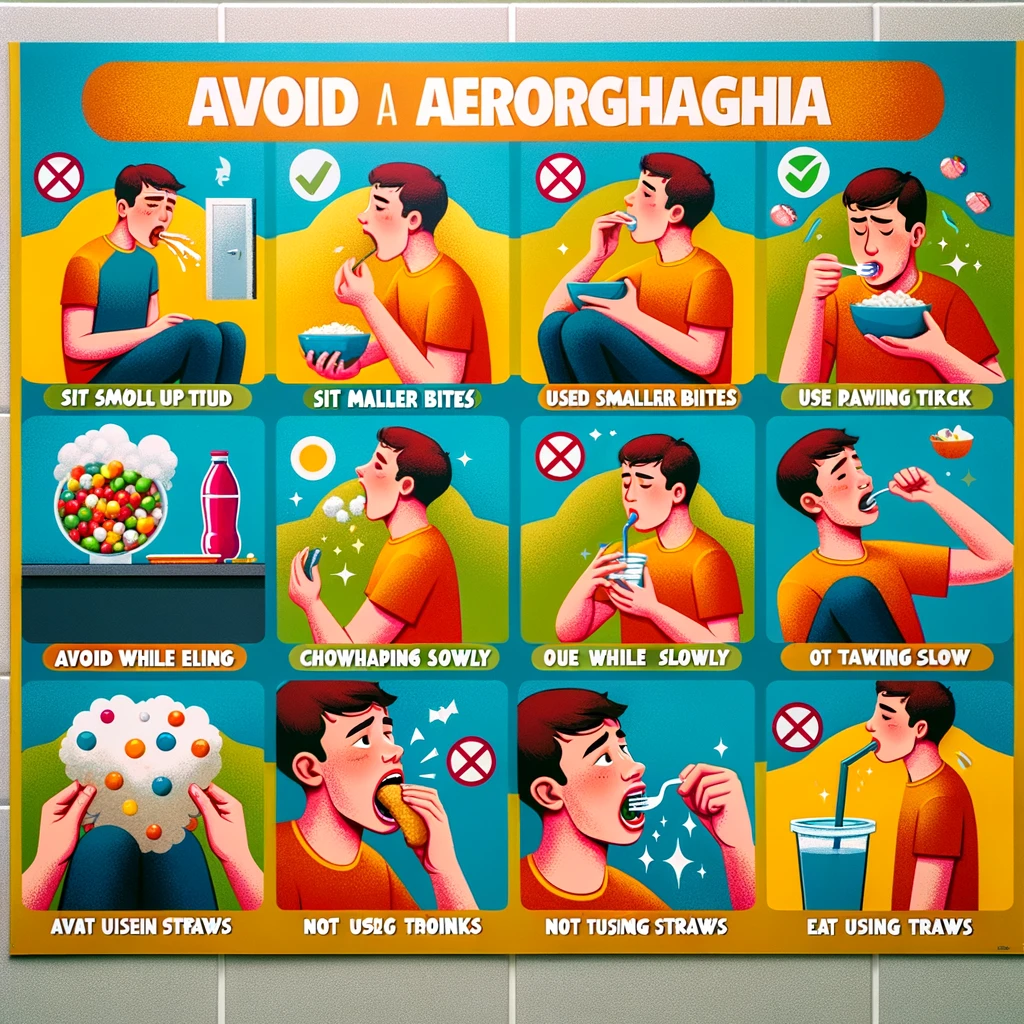Aerophagia or Air Swallowing is excessive air intake which can lead to one or more of the following: excessive belching, abdominal distention, breathing difficulty, smothering sensations, heart palpitations, and chest pain resembling that of a heart attack.The discomfort it can cause Some air is unavoidably swallowed with food and drink. But large amounts may be gulped during emotional upsets, rapid eating, gum chewing, smoking, and while drinking carbonated beverages.
A chin-to-chest maneuver to stop it Air is swallowed when the closing mechanism at the upper end of the esophagus (the lube leading from the throat to the stomach) opens, allowing air to be sucked in. One effective measure: Hold your chin to your chest. That position makes it difficult for the mechanism to open.
Five ways to avoid Aerophagia( Air Swallowing) While Eating

• Each sigh means a swallow of air. Try to become aware of any sighing so you can stop it.
Don’t bolt food. And exhale just before swallowing.
• Rather than sip or gulp liquids, drink slowly—and keep your upper lip submerged by tilting the glass.
• Let very hot beverages cool before drinking. Otherwise, knowingly or not, you’ll draw in air to cool them.
• Moderate intake not only of soda pop and other carbonated beverages but also of foods and drinks with air whipped in (for example, milk shakes and whipped butter).
Certainly! Here is a tabular format guide with ways to avoid aerophagia (air swallowing) while eating:
| Avoidance Technique | Description |
|---|---|
| Eat Slowly | Take your time to chew your food thoroughly and savor each bite, reducing the chances of gulping air. |
| Small Bites | Cut your food into smaller, manageable pieces to minimize the amount of air you swallow. |
| Proper Posture | Sit up straight while eating to prevent inhaling excess air when slouching or hunching over. |
| Limit Carbonated Beverages | Reduce or avoid carbonated drinks, as they can introduce additional air into your digestive system. |
| Avoid Using Straws | Drinking through a straw can lead to increased air intake, so it’s best to drink directly from a glass. |
| Less Talking During Meals | Talking too much while eating can result in swallowing more air, so keep conversations minimal. |
| Avoid Chewing Gum | Chewing gum can cause you to swallow extra air, so it’s better to skip it, especially during meals. |
| Identify Food Triggers | Some foods, like beans, cabbage, and broccoli, can produce excess gas. Limit their consumption. |
| Stay Relaxed | Eating in a calm and stress-free environment can reduce the likelihood of rapid eating and air swallowing. |
| Stay Hydrated | Drink water between meals rather than during to avoid diluting stomach acid, which can lead to swallowing more air. |
| Consult a Doctor | If you experience chronic aerophagia or digestive issues, consult a healthcare professional for guidance and potential treatment. |
Remember that everyone is different, and what works best for you may vary. It’s important to pay attention to your eating habits and make adjustments as needed to minimize air swallowing and improve your digestive comfort.
